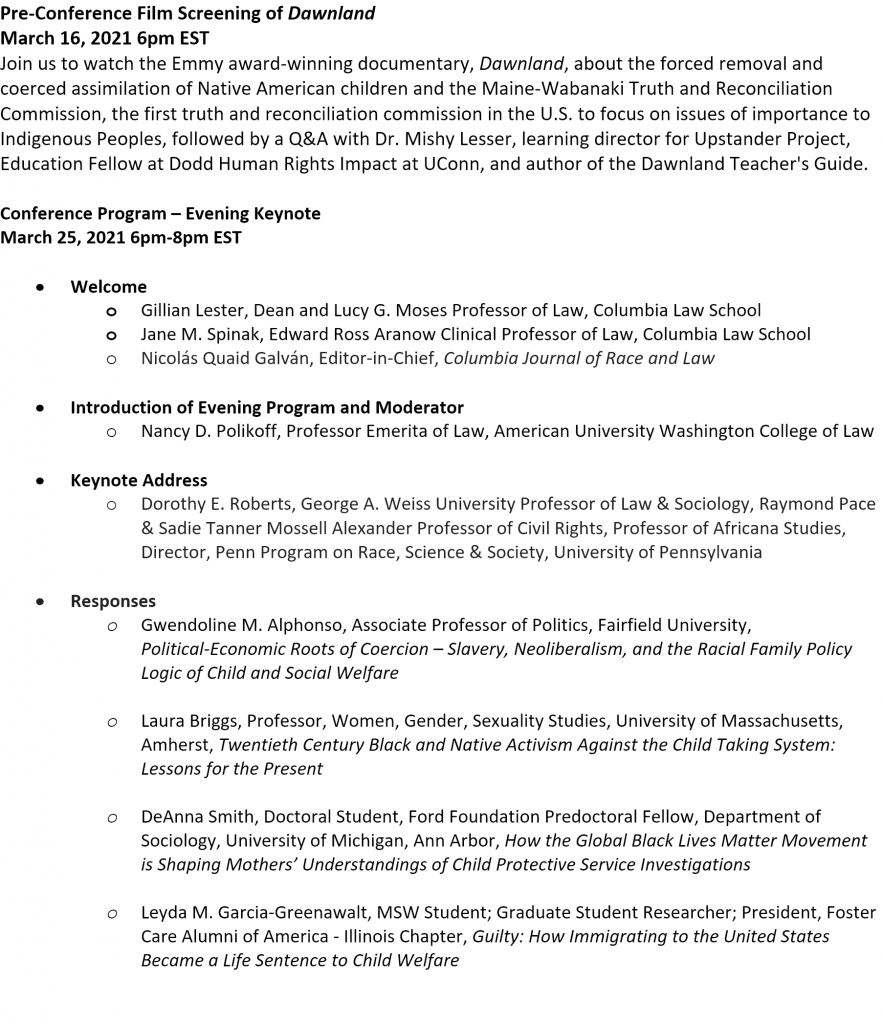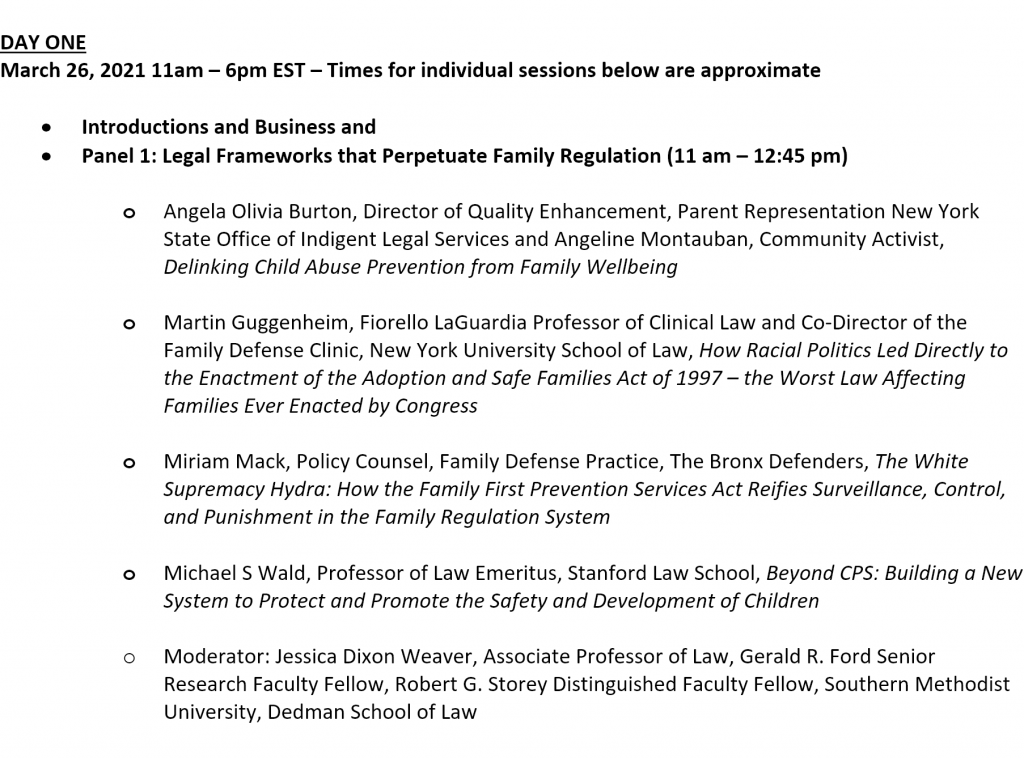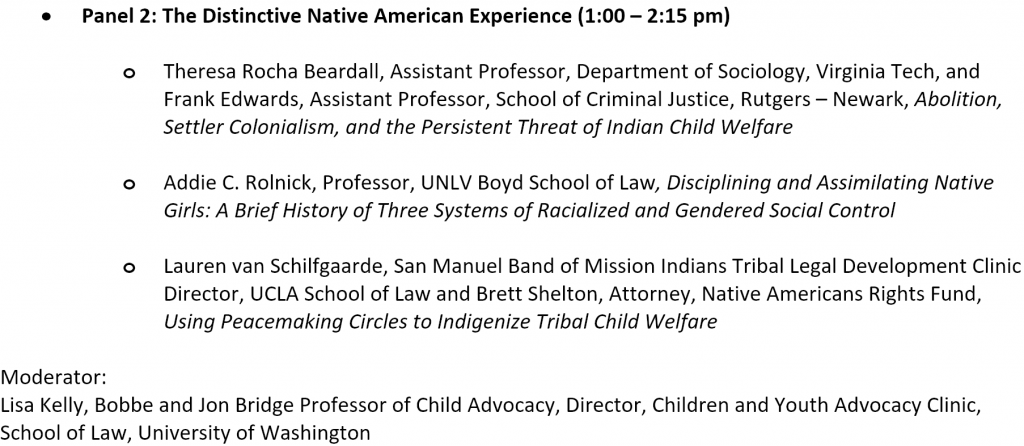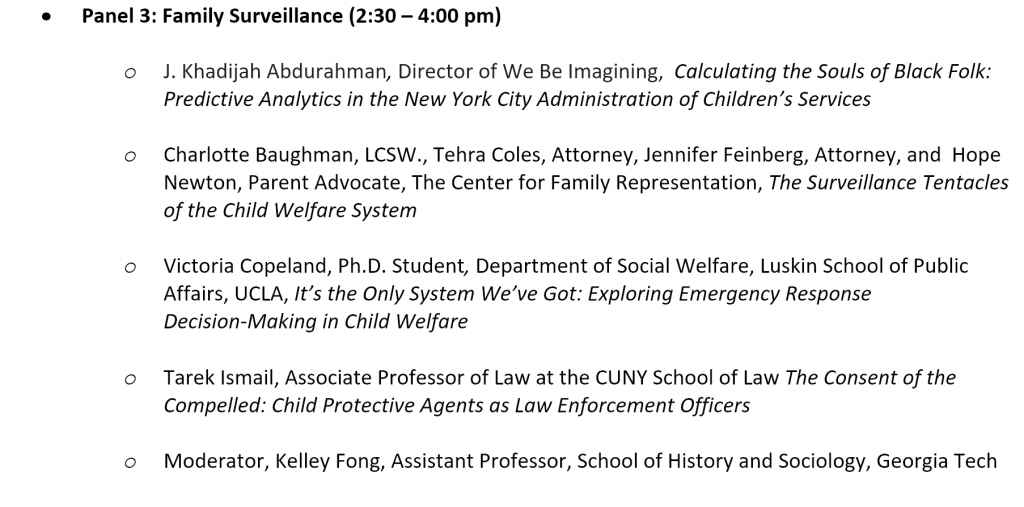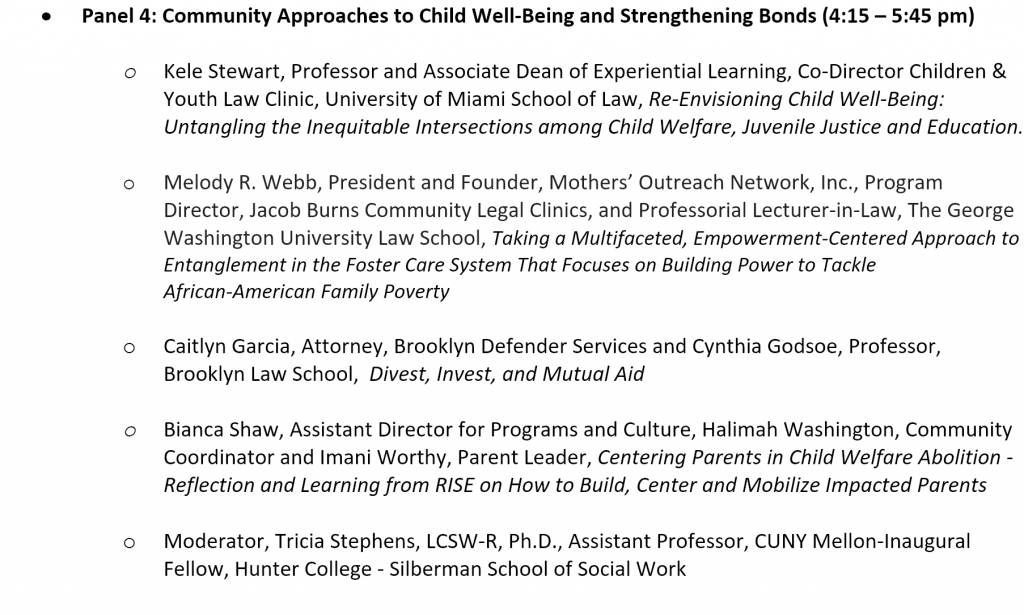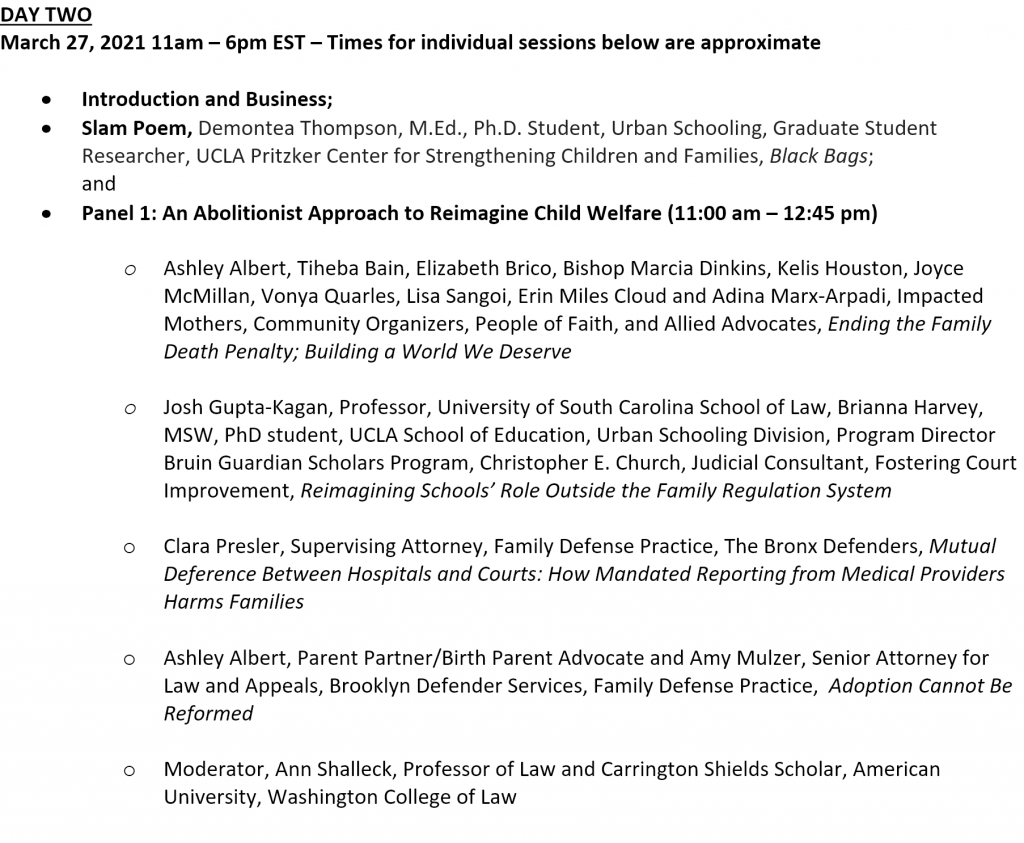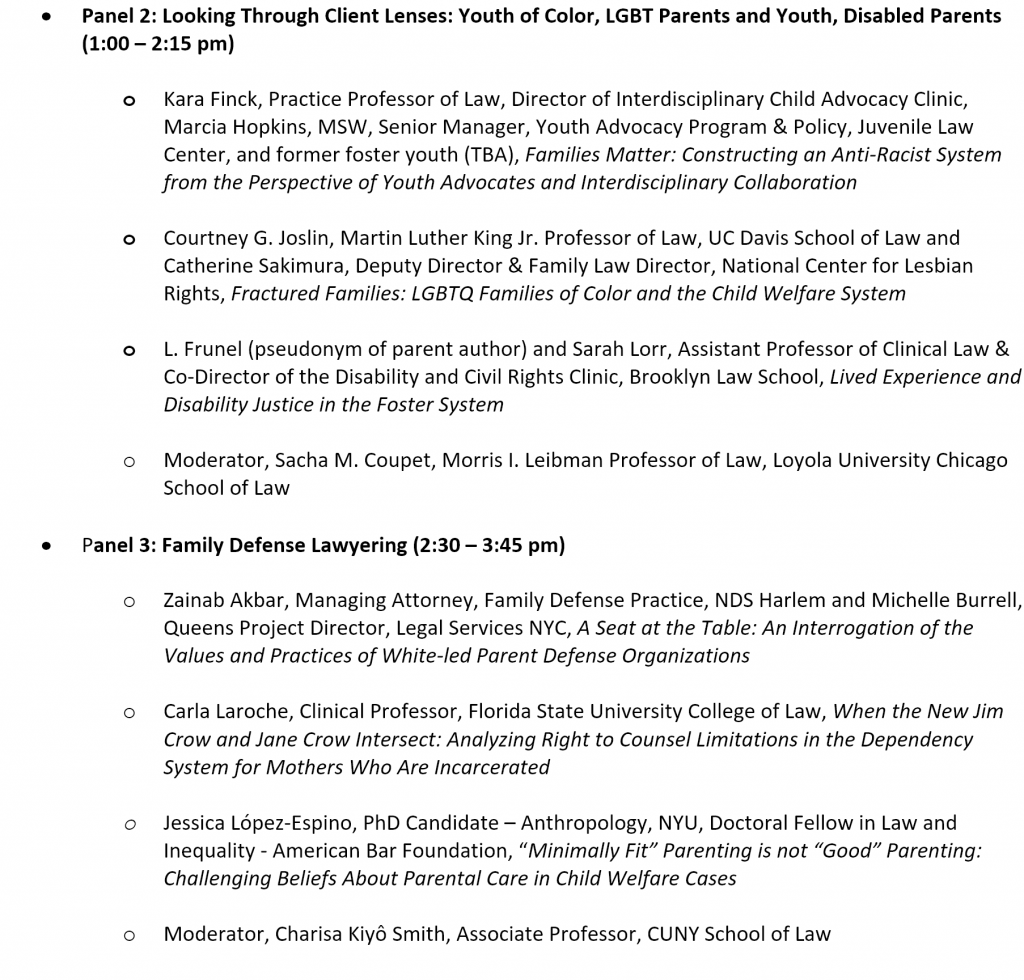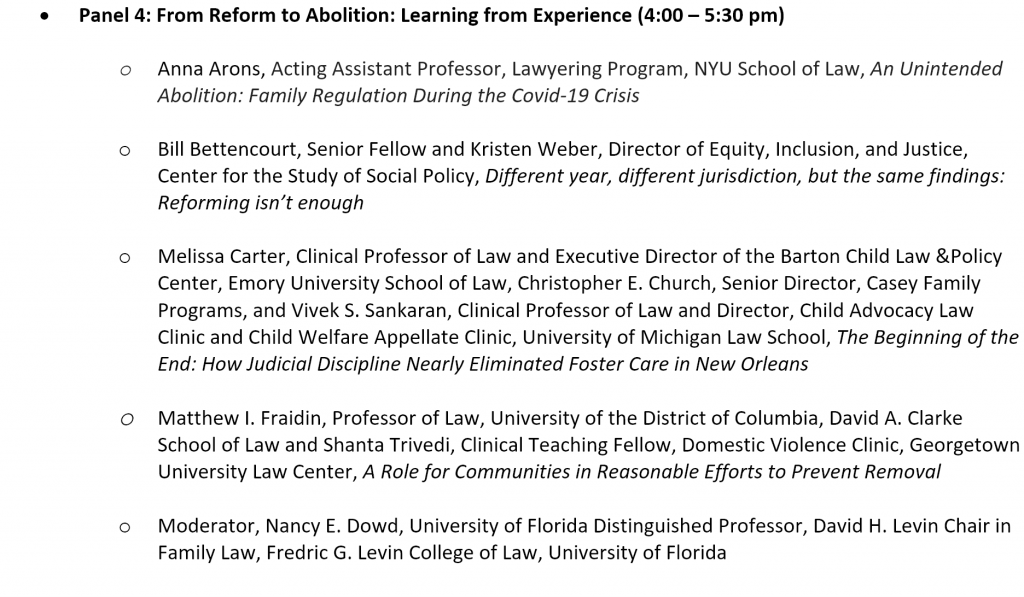Columbia Law SchoolColumbia Journal of Race and LawMarch 25-27, 2021
Twenty years ago, in Shattered Bonds: The Color of Child Welfare, law professor Dorothy Roberts systematically dismantled any pretense that the child welfare system functions to serve the interests of children. Through data, documentation, history, analysis, and family narratives, Professor Roberts called out the racism at the heart of a system that has destroyed hundreds of thousands of families. “If you came with no preconceptions about the purpose of the child welfare system,” she wrote, “you would have to conclude that it is an institution designed to monitor, regulate, and punish poor Black families.” Professor Roberts built on earlier analyses of child protection intervention that identified poverty as the leading reason for the state removing children from their families, and on the long legacy of early Progressive activists’ efforts to assimilate immigrant families who were a threat to “American” norms by conditioning assistance on intrusive and punitive interventions in their lives. We mark the 20th anniversary of this groundbreaking book with a conference and two symposium issues of the Columbia Journal of Race and Law (CJRL). The symposium is co-chaired by Professors Nancy Polikoff (American University Washington College of Law) and Jane Spinak (Columbia Law School).
Since the publication of Shattered Bonds, reform efforts have, for the most part, focused on making the current child welfare system work better without fundamentally challenging its existence. This conference is an opportunity to critique this limited reform approach and consider radical change to re-imagine how society cares for and protects children while honoring their bonds to their families and communities. The past two decades have seen abundant critiques of the American criminal legal system and its reliance on physical and financial punishment, incarceration, and isolation. A forceful prison abolition movement envisions replacing imprisonment, policing, and surveillance with alternatives that respond effectively to harm without putting people in cages or increasing the prison industrial complex, and that instead create and support healthy, stable families and communities. Parallels exist between the criminal legal system and the child welfare system; most obviously, both trace their practices to colonization and slavery, mass immigration and displacement of native populations, and the resulting and lasting inequities that have ensued and continue to disproportionately target poor people of color and especially Black and Native American communities.
The prison abolition movement has produced a robust body of scholarship. The call for papers for this symposium conference has generated equally insightful, imaginative, and important scholarship in support of abolishing the child welfare system and creating a radically new approach to child well-being. The presenters and authors are from multiple academic disciplines and include parents and youth affected by the child welfare and foster care systems, community members, advocates and activists.
